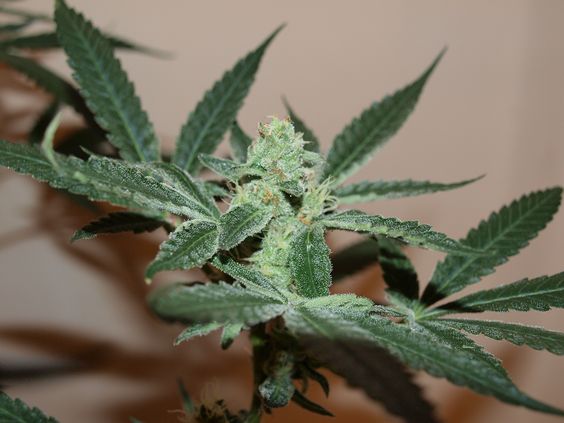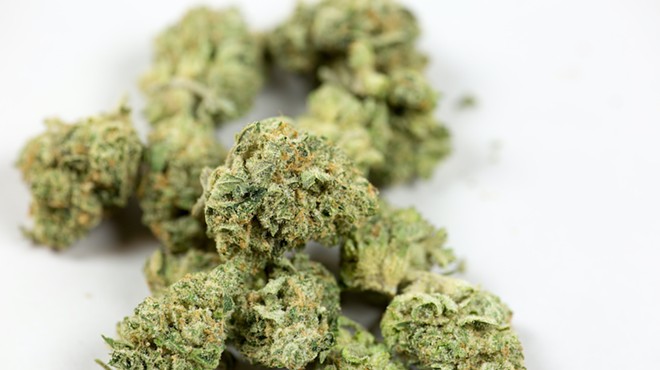On Monday, the State of Florida implemented a rule regarding how much THC a patient may have; the state already had a debatably conservative amount allowed to patients and decided to decrease even further. At the same time, Mike’s Medicines was supplied with documents that prove multiple labs approved by the state to test products for the most prominent producers there have been cited for misreporting. While the amount of Cannabis flower that can be bought is based on weight (no more than 2.5 ounces in 35 days), that doesn’t hold for ingestible products, which creates quite the controversy when patients and even producers are very aware of pumped-up, inflated, and sometimes downright fake lab reports that make people believe there’s more THC in the product than there is.
So how exactly does this all work? In America’s massive medical marijuana industry that’s gone recreational, state governments have opted to allow private, for-profit cannabis labs to be the sole reporter of what’s in products. Cannabis farmers and product processors must pay private, state-certified labs to conduct batch-specific tests before any product can be sent off to the dispensary to be sold to consumers.
The samples must pass a quality assurance check to ensure there isn’t anything funky going on in the weed or the tincture, topical, or other creation. These labs are charged with making sure things like E. coli or mold are not present and test for cannabinoid potency, but it must be done the way the lab was approved. In other words, they have a protocol in which things are done; if they change that and the state finds out – they get fined.
But why would a lab change the protocol? Several reasons are on this list, but the number one tends to be that almighty dollar. When growers and creators of consumer goods with Cannabinoids get deep in the streets with their analytical lab, some things can happen that no consumer enjoys. In the case of Florida residents, it’s misreporting how much THC is in the product, which diminishes how many ingestible and noncombustible items they can have.
For the people of Florida, limitations, and access have already been an ongoing issue, so this new cap on THC and smokeable products that reduce supply isn’t helping things. The emergency rule sets a 70-day total supply limit of 24,500 mg of THC for non-smokable products like the oils people use to fight off serious issues. It also establishes dosage caps for different routes of administration, such as edibles, inhalation, and tinctures.
“We need more oils allowed to us, we need more help with lower prices too. I can’t afford my medicine and the emergency rule is causing me a mental health crisis because I don’t know where I’ll get the oils I need, I already had to go outside of the market and am afraid I’ll be completely on my own trying to treat myself, I don’t want to use Oxycodone again,” stated Rebecca Stalls, a former nurse.
Many feel that Florida is moving backward in its attempt to provide the state’s patients with Safe Access to Cannabis. There’s no doubt that the underground market will continue to thrive knowing that residents of one of the biggest states in the nation are limited, by government forces, in how much THC they can use or Cannabis they can smoke.
We are in an era of Civil Rights; the 1960s came back and are in its 5.0 version. People are demanding their rights to just about everything and not so peacefully anymore. From school shootings to the right to marry who someone loves, the right to birth control and abortion, the right to be whoever you are regardless of what color or gender preference you have – or if you have none at all.
In 1997 I became a Registered Civil Rights Lobbyist and, for the most part, represented kids in special education disputes involving restraint, seclusion, and abuse – handling the ugly of the ugly. More than once, stepping out of that uncomfort zone took on states, counties, and once even a judicial system that had abandoned the core values that create America – our rights.
Several documents were reviewed by Mike’s Medicines from Florida Health that contained multitudes of infractions by Analytical labs. On August 12, 2022, a notice from the state went to Method Testing Labs regarding violations that require the payment of a 6,000.00 fine. The Florida Department of Health letter to Method Testing cites 6 Certificates of Analysis (COA’s) which all had “false or inaccurate information’ upon them.
ACS Laboratory of Florida was also fined 2,000.00 the same day for the false or inaccurate information on 2 COAs. A few days ago, on August 30th, Green Science labs of Florida was fined 20,000.00 for engaging in noncompliant activities and unapproved analytical methods. Again ACS Labs was nailed on the same date, August 30th, for the same issue that Green Science had and was fined 20,000 for noncompliance in analytical testing.
What was the most shocking revelation in all of this was the fact that ACS was nailed for misreporting on Trulieve TruFlower Mandarin Cookies. It’s been no shocking revelation that a lab misreported THC, that’s for sure, in 2021 whistleblower Keegan Skeate’s made a decisive decision to report Praxis Laboratories for their inflated THC on COA’s to Washington state caught just about everyone’s attention, especially in that tests were altered in over 1200 samples that were reported on.
There’s no reason to sound alarms as this problem isn’t new, but it does send shivers of discontent down the spine of anyone attempting to compete in the industry against companies or corporations with enough funding and power to get analytical labs to do what Skeate’s spoke so heavily on in the report “America’s Pot Labs Have a THC Problem.”
It doesn’t matter how we slice and dice this; the consumer is taking the hit both at the cash register and again when they get home. “I’m already low, I already don’t have what I need, and I don’t know what to do with these lowered amounts that come with high prices other than move away,” stated Wendell Carmen, a cannabis patient. “I came to Florida because my Aunt lives here, and I’d have a safe place to stay while using the plant instead of Opioids; I was addicted to Norco after a knee injury that wouldn’t heal ended up causing me to go on disability. I’m fed up with Florida, I had an opportunity to move to Oregon and should have taken it.”
Trent Hancock of Creswell Organics, an outspoken Cannabis activist and small business owner voiced his concern, “My small business has had to take some heat in exposing noncompliant labs and misreporting while these big entities with the power to lobby and fix testing problems to protect consumers are being entirely silent.”
He has an excellent point, the big guys with the Big Guns have had little to nothing to say about the actions of Florida in capping what they sell, and indeed they are funded with both legal departments and lobbyists on the payroll – they could do the job that the small farm or entity is having to do now in attempting to police an industry that is overreporting how much THC is in products.
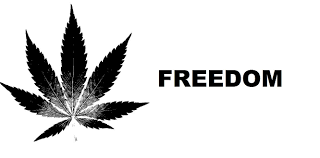
Social media has been buzzing all week with talk of how Florida has taken one step forward in regulation and two steps back in cannabis patient access and care. Industry members and consumers have voiced concerns publicly, taking to their platforms to make statements about the travesty of justice occurring in a state that’s not paying much attention to the nation’s current dilemma.
In an era in which Civil Rights have resurfaced much like the 1960s but in a 5.0 version, the populous at large, despite which political agenda they have, want their rights either intact or restored. It’s very well known that a Republican-led state played a conservative card in the reduction in access for Florida patients. Many are second-guessing this move as a backlash to the state’s voters swaying in the direction of freedom and not regulation.
Florida has not been alone in social disruption over such issues in the U.S. that have the world at arms and investors on edge. We have economic difficulties, but the populous is also fed up with being controlled. At the same time, a power play continues on the Federal level to prevent people who want to use Cannabis from the freedoms necessary to enjoy it.
One nation under all is now divided as we stand, but not on Cannabis. 75% of Americans favor the end of prohibition if you average out the numbers in polls; we watch as other nations legalize the plant and also decriminalize drugs while providing treatment programs for people who are addicted or caught with them.
But, in America, where we are the land of the free, we watch as states give Independent Analytical labs the freedom to change up testing protocols, misreport THC levels, and also gain a fat check for doing so while paying small fines. We also limit how much alternative medicine people can get, so they’re forced to use pharmaceuticals which is beyond ironic as that’s the reason they went to Cannabis in the first place.
Ongoing Federal Prohibition has created a nightmare with the state-to-state regulation that varies, with patients trying to gain access and either being limited like Florida has done or being told they can only use CBD in some places. The end of schedule one means the plant gets set free if the federal government wants to schedule some cannabinoids due to their strength, such as THCP, I’m all for that.
But, we need to free the weed; we need to allow patients to grow the plant like a tomato in their backyard and make whatever sauce they want. Our nation was built on the right to live free; over the last several years and especially in 2022, we’ve watched some of this stripped away.
The Cannabis Industry itself must find a way to police the issues with labs and inaccurate reporting; in the case of the Florida Cap on THC, it’s easy to conclude that nothing can be accurate except for their limitation on how much Cannabis Flower one can consume. If labs aren’t correct on other products within the state, how can anyone know if they comply?
What if the labs are wrong in favor of the patient? Will they have violated Florida State Law?
It’s all nonsensical, at best, leaving most patients either holding onto the hope that national hatred of the plant ends and legalization allows them to grow some weed.
-Mike Robinson, Founder, Global Cannabinoid Research Center
Orlando Weekly Reported on Aug 29th:
Florida health officials have released a highly anticipated rule setting THC dosage amounts and supply limits on products doctors can order for medical-marijuana patients.
The emergency rule sets a 70-day total supply limit of 24,500 mg of THC for non-smokable marijuana and establishes dosage caps for different routes of administration such as edibles, inhalation and tinctures.
The rule, which was sent to patients and doctors on Friday and went into effect Monday, also carries out a state law that imposed a 2.5-ounce limit on smokable marijuana purchases over a 35-day period.
While the rule lays out limits for THC in non-smokable products, the limit for whole flower and other products that can be smoked are based on weight. They are not based on levels of THC, the euphoria-inducing component in marijuana.
And the emergency rule creates a process for doctors to seek an override for patients they believe need to exceed the limits. The rule does not identify a way for patients or doctors to appeal if the requests are denied.
The dosing and supply caps came nearly six years after Florida voters approved a constitutional amendment broadly legalizing medical marijuana and more than three years after the Legislature, at the behest of Gov. Ron DeSantis, authorized smokable marijuana.
In setting up the framework for the medical-marijuana program, lawmakers gave the Department of Health the power to use emergency rules to craft regulations. Emergency rules can be published without taking public input, as is required for non-emergency regulations.
The use of the emergency rule is “kind of the burr in my bonnet” about the dosage and supply caps, Pensacola doctor Michelle Beasley told The News Service of Florida on Monday.
“Regardless of the numbers, what harm has there been, what is the rationalization that they need to use emergency rule power and exclude the comments of all the physicians and all the patients in the state to do this?” Beasley, who works for MMTC of Florida, said.
The rule sets 70-day supply limits for different routes of administration and calculates the equivalent daily dose for the caps. Under the rule, patients’ daily THC doses are restricted to 60 mg for edibles; 350 mg for vaporization; 200 mg for capsules and tinctures; 190 mg for sublingual tinctures; 190 mg for suppositories; and 150 mg for topicals.
Just a fraction of the state’s nearly 800,000 medical-marijuana patients would need overrides for the new limits, according to several people interviewed by the News Service on Monday.
But industry insiders predict the dosage limits and supply restrictions will make marijuana products more expensive for patients, who frequently seek out sales when making purchases.
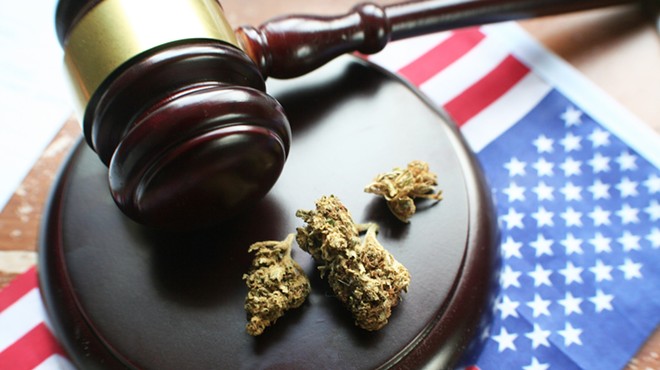
Because Marijuana remains illegal under federal law, patients must pay all costs for doctor visits and supplies.
“It’s basically making people shop at Publix when they could go to Sam’s Club and get the bulk discount,” Beasley said, noting that many medical-marijuana patients in Florida are retired or on fixed incomes. “If they had done the normal rule process, where they had public comment from patients, from doctors, they would have had that (information).”
The dosage limits also could prevent patients who purchase products that don’t work well for them from being able to buy replacement products within the 70-day window.
Barry Gordon, a doctor with Compassionate Cannabis Clinic in Venice, blasted the procedure used for the regulation, as well as the rule itself.
“I think what this demonstrates is just the utter disregard that the DOH (Department of Health) has for not only the doctors who actively participate in the program with honor and integrity and diligence, trying to follow the rules of a very difficult process to navigate already, much less the patients who are disrespected,” Gordon said. “But to send this out on a Friday afternoon with no discussion, with no workshops, with nothing, is just an unbelievable malfeasance. … Who does that?”
Patients can use instructional guides and calculators provided by the Office of Medical Marijuana Use to determine how much they have purchased, how much they can buy and when their orders can be renewed.
Beasley called the process “unnecessarily burdensome” for patients, especially for older patients who may be experiencing cognitive declines.
“I do this full time and I have a medical doctorate and it’s taxing for my brain,” she said.
But John Lockwood, an attorney who represents several medical-marijuana operators, predicted that patients will adjust to the changes.
“I’m hopeful the patients will be able to quickly acclimate to the changes, given that the industry was not afforded the benefit of a public workshop prior to the rule adoption,” he said Monday.
Patients are facing the new limits shortly after the launch of a ballot initiative that would legalize recreational use of marijuana for Floridians 21 and older. Trulieve, the state’s largest medical-marijuana company, contributed $5 million in seed money to get the initiative aimed for the 2024 ballot rolling.
Beasley indicated state policymakers’ regulatory approach to cannabis could drum up support for the effort.
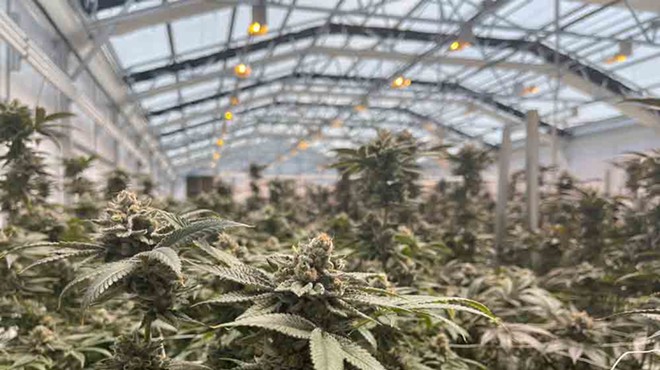
“It just seems like there is this disconnect where some of the politicians —- not all —- feel as if building a good medical program leads to legalization faster,” she told the News Service. “In my opinion, it’s the opposite. If you make the medical patients mad and limit their access to their medicine and make it expensive and harder to get, then they’re just going to say, ‘Screw this. I’m just going to sign the legalization petition so I don’t have to deal with jumping through these hoops.’”

